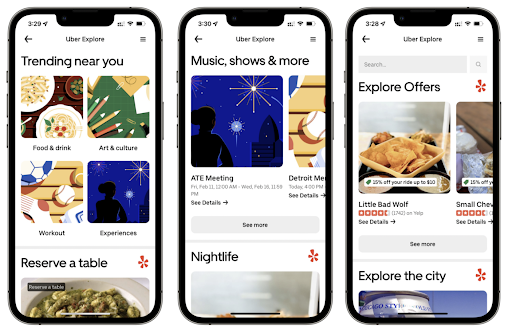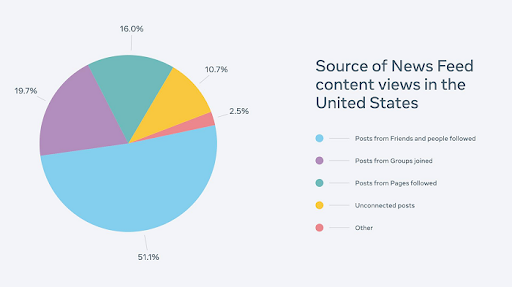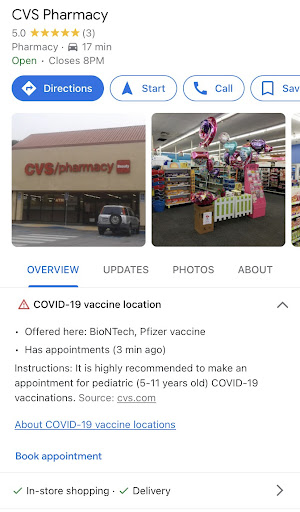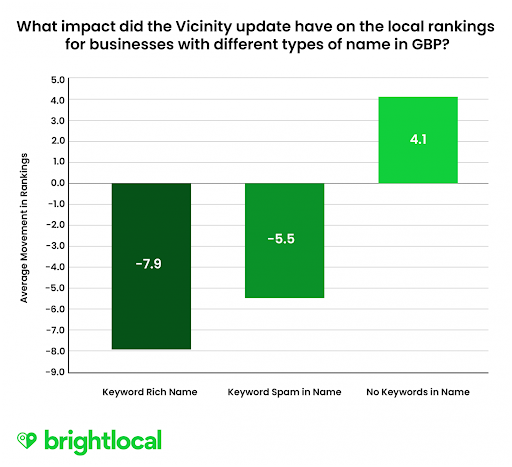The TikTok Search Revolution: How Gen Z is Transforming Online Discovery
Local Memo: Uber Launches Local Search Tool with Yelp Content
In this week’s update, learn about Uber’s new local search feature; Meta’s latest Widely Viewed Content report; more “Confirmed by” flags in Google profiles; the real impact of the Vicinity Update; temporary suspension of reviews for businesses in Russia; and local SEO challenges for franchise businesses.
Uber Launches Local Search Tool with Yelp Content
Uber has announced the launch of Uber Explore, a new local search tool within the Uber ridesharing app that allows consumers to search for and book “experiences” like restaurant reservations and live events. The service relies largely on content from Yelp, extending Yelp’s already broad syndication reach. (Yelp reviews and other content are live today in Apple Maps, Amazon Alexa, and elsewhere.)
Supported business categories for Uber Explore include food and drink, art and culture, nightlife, and live entertainment venues. Users can view reviews and photos for these locations and can book a ride as well as purchase tickets to events from within the app. Uber is offering ride discounts to popular places featured in Explore. The Explore tool is now live in 14 U.S. cities as well as Mexico City.

Courtesy Yelp
Meta Releases New Widely Viewed Content Report
Meta has released an update to its Widely Viewed Content report for Facebook, released for the first time last year, in part to counter similar reports from external sources (such as the Twitter account @FacebooksTop10) claiming that much of Facebook’s most popular content is politically divisive in nature. Meta’s version of the report attempts to cast a wider net, focusing not just on popular third-party content sources like Occupy Democrats and Fox News, but also on content shared by friends, business pages, and other Facebook users.
According to the latest report, the majority of content seen by Facebook users, some 51.1%, comes from friends and people the user follows. The second-largest sector at 19.7% is content from groups, followed by posts from followed pages at 16.0%, “unconnected” posts at 10.7%, and “other” at 2.5%.
The report details the most widely-viewed domains on Facebook, with YouTube, TikTok, and GoFundMe taking the top three positions; the most widely viewed links, a list topped this year by a TikTok video viewed 59.1 million times; and the most widely viewed pages and posts. Several items in the report, including the most widely viewed page, which garnered 121.8 million viewers, are not identified in the report except with a note stating their content was removed due to violations of Facebook’s community guidelines.

More “Confirmed By” Flags in Google Profiles
More examples are popping up of the “Confirmed by this business” flag in Google profiles, which I first reported last week. The first example detected by Thibault Adda and shared on Twitter read “Confirmed by this business 4 weeks ago”; now Saijo George has spotted a flag for a business in Australia that reads “Confirmed by phone call 8 weeks ago.” Barry Schwartz speculates that the phrase “confirmed by phone call” means that Google has used its Duplex voice AI technology to call the business and confirm its phone number. Another example shared on Twitter merely reads “Confirmed by others 3 weeks ago,” and may refer to a user-based update.
These messages seem to be cropping up more often. I was able to spot an example in the profile of a local pharmacy that showed an especially timely update. Noting that the pharmacy was available for COVID-19 vaccinations, the update read, “Has appointments (3 min ago).” Rather than a phone-based confirmation, this type of update would appear to rely on a live data connection between the pharmacy and Google.

The Real Impact of the Vicinity Update
BrightLocal has conducted a comprehensive study that looks at the impact of the recent Vicinity Update, presumed to have reduced the geographic reach of businesses that once ranked across a broad area, and to have impacted rankings for businesses with keywords in their names. The report finds that businesses with keywords in their names did lose rank in comparison to businesses without keywords. The study defines Google profiles as “keyword rich” if the business name in the profile matches the name on the business website and happens to contain keywords, such as “SupaLock Locksmiths” containing the word “locksmith.” Profiles with excessive keywords not matching the real-word business name are said to contain keyword spam, and profiles without keywords in their names form a third “no keywords” group.
The findings indicate that “keyword rich” businesses lost 7.9 places; those with keyword spam lost 5.5 places; and those without any keywords gained 4.1 places. Noting that Google seemed to be penalizing businesses with legitimate keywords even more severely than those with keyword spam, BrightLocal also looked at overall length of the business name as a factor, and found that businesses with 31-40 characters in their names lost 10.3 places, whereas businesses with shorter names generally gained in rankings. Google appears to be struggling to tell the difference between legitimate and spam keywords, penalizing both types of profile in comparison to profiles with shorter, keyword-free names.

Google, TripAdvisor Suspend Reviews for Some Businesses in Russia
Google and TripAdvisor have temporarily removed the ability to leave reviews of some businesses in Russia as well as Ukraine and Belarus, after an influx of politically-oriented messages began appearing in business profiles for popular restaurants and tourist destinations. Activist group Anonymous sparked this activity by encouraging its followers to write reviews on Google Maps of Russian businesses to explain “what is happening in Ukraine” to Russian citizens, in order to counteract moves by the Russian government to cut off external sources of news. After others took up the charge online, the movement spread to TripAdvisor and to businesses in Ukraine and Belarus. Google reports that it has temporarily suspended all user generated content for select locations – including reviews, photos, and videos. TripAdvisor has made similar moves, directing users who want to discuss the invasion to its community forums.
Local SEO Challenges for Franchises
Tim Capper has a new post offering tips for those looking to improve local SEO for franchise businesses. He emphasizes the importance of brand consistency, often a challenge for franchises who must work to coordinate the efforts of numerous local owners in updating and maintaining online profiles, responding to reviews, creating website content, and the like. Consistency begins with a naming convention for business locations and extends to consistency in messaging on business descriptions and product or service lists; use of high-quality photos in listings; guidance on the proper use of Google posts; and advice for responding to reviews, among several other topics for which Capper provides suggested best practices.




